Are We Alone in the Universe? - The Quest for Extraterrestrial life
Considering everything we know about the universe, it is very logical to contemplate this question. Many professionals have built their life's work on finding out and many still will... Is there life originating or already present outside the earth's atmosphere? In space? Or on another planet; alien to the earth's biosphere?
There may be a civilisation (originating from prokaryotes or not) that is more or less far complex than any biological life ever observed by humans. In the case where there are sentient beings outside, they may not be distinguishable from what most of us mean by gods - not in the sense that they will be able to perform some magic tricks. But that they will be able to use science and technology in such a way that would appear superior to our present understanding. This brings us the fright that if we find any of such beings - or they find us - we might be subjected to colonization, just the same way other animals appear relative to us.
The branch of science that deals with the possibility and likely nature of life on other planets or in space are called EXOBIOLOGY. The study on extraterrestrial life commenced more seriously during the mid-20th century. Since then, non-stop research and discoveries about the matter being recorded. The general notion of sentient life outside the earth plays a very important role in the ideas, customs and social behaviour of our civilisation and individual society; focusing on the activities in science fiction movies. For many years, movies and books have shared information gotten from our scientific intuitions about the universe and this has no doubt shaped how we think of Aliens.
Today some intellectuals think it is not a good idea to make effort on communicating with these aliens if found, others think it is a good idea and truculently support the procedures adopted to communicate with such beings.
What Do We Know?
It is very likely that microorganisms are abundant in our solar system, galaxy and even all the way through the universe. The main precursor of this idea is the fact that the universe is unimaginably large and the laws of physics, chemistry and biology remain the same throughout the discernible world. World-renowned intellectuals like Carl Sagan and professor Stephen Hawking (Alas) made this case during their lifetime, they argued that it is unthinkable that life only exists on earth. The thing is, the chemical processes for life could have started momentarily after the Big Bang about 14 billion years ago and can also surface autonomously in different corners of the Universe.
It is also possible that the emergence of life might be relatively rare, emerging in only a few places and then propagated throughout the universe by various interstellar activities. This way of thinking about the emergence of life is covered by the study Panspermia.
It is the theory that life on the earth originated from microorganisms or chemical precursors of life present in outer space and able to initiate life on reaching a suitable environment. - IEET.org
Anyways, composite biomolecules could have amalgamated inside the dusty disks of proto-planets that encompassed a star prior to the establishment of its planets. The procedures for the rise of life is not limited to the formation of stars and planets alone, it may happen on various moons - this we shall discuss later.
The Copernican Principle
In his time, the physicist and philosopher Nicolaus Copernicus realized that the Earth isn't in any specifically favoured location in our Solar system. This discovery was then labelled in the 20th century as a stark implication and called The Copernican Principle. Keeping this fact in mind, one can now see the big picture, eliminating the selfish tendency to assert that we are the masters of the universe - which could be true or false - and further examine our place in the world.
We now understand as a fact that our Solar system is not the centre of the Milky Way galaxy. The principle laid foundations that led to Doppler's discovery that the stars are moving away from us.
We might not be the only organisms that have asked the question - “Where did I come from?”
The Goldilocks Zone
The Goldilocks zone is also called the habitable zone. The word or name Goldilocks came from a short story in our old storybooks narrating how a child named Goldilocks always picked - from a basket containing three items - an object that is not too big or tiny, hot or cold or too severe in any nature it can be. What is “ just right”
Reports in Astrobiology and Astronomy gave it an even weirder name - as relating to planets; the Circumstellar habitable zone (CHZ). The CHZ is the area of variation between extreme conditions. It is focused on the orbits about a star that allows planets to contain water in their outermost crust and have the right amount of atmospheric pressure. The boundaries of the Goldilocks zone is defined by a comparison of a planet with the earth's position from the sun and the quantity of radiation transferred from the star of the planet.
Water is a very important tool for the kind of biological life that exists on the earth and if we are to look for life anywhere in the universe why not start the search with the natural conditions that may have given rise to us - intelligent animals. I made a series on the stages of how life came about see The biography of the Universe.
What do we know?
The idea of searching for habitable zones in the galaxy was first put forward in the 1950s. Scientists assert that the more the number of Earth-like planets in the habitable zone around a star, the more probable the rise of life becomes in that area. In 2007 scientists created a kind of comparison method for the estimation of planets in the Goldilocks zone relative to their similar features with the earth and the comparison ranged between billions of numbers.
Kepler space station - after sorting through complex data gathered for months - reported in November 2013 that there should be more than 40 billion Earth-like planets in the various habitable zones that orbit around sun-like stars in the Milky Way galaxy. The thing is, the nearest planets among the various habitable zones are about 12 light years away. That means it will take us twelve years moving with the speed of light to reach the nearest habitable zone in the galaxy. So when you think about why we haven't been able to contact alien life, think about how far they may be.
In 2017, scientific works reported that life might actually be on the rare side because of the outrageously complex biological functions involved in giving rise to it. Although many scientists refute this claim because, statistically even if the earth were the only habitable planet in the galaxy, due to how large the universe is, alien life could still rise.
Looking within our reach
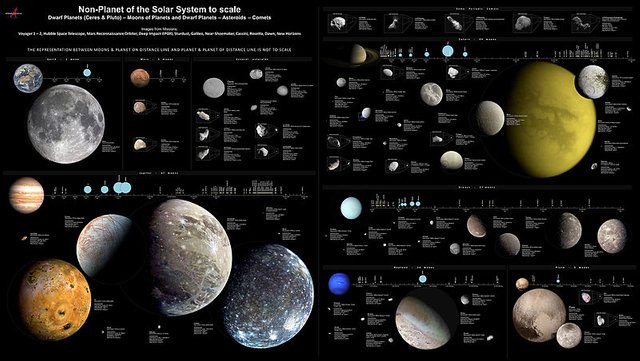
Image by Antonio Ciccolella - Wikimedia Commons (CC BY-SA 4.0)
Scientists have discovered that some planets in our Solar system have great prospects for the rise of life. Explicitly planets that have oceans on their surface. Astrobiologists advocate that if by any means we find life anywhere else in our solar system they would almost doubtlessly be extremophiles.
Venus
Up till the last century, scientists suspected that this planet was a lot like the earth in terms of characteristics. This notion, however, only grew wings because during those times there were not effective tools good enough for the collection of data - compared to the tech we have and the science we know now. Everything changed during the rise of the space age. The space age started around 1960 and is known to be the start of the cosmological revolution, exploration and scientific predictions.
Venus will not accommodate earth-like biological life” - Most of the data we have gathered about our solar system suggests that this is true. The only similarity we think this planet may have with the earth is that in its atmosphere, about 50 to 65 kilometres high, it’s temperature and pressure matches the earth. Only thermoacidophilic extremophile microorganisms may be able to live here. In the acidic outer crusts of the Venusian atmosphere. Although the data also suspects that Venus contained water during its early years. - Wikipedia
Mars
It is generally accepted by scientists that Mars was a planet brimming with water during its younger years. And even now they can still find tiny volumes of water inside the planet’s soil. Right now, there is solid proof that Mars was a warm and very wet planet that contained polar ice caps, volcanoes and different minerals that completely depended on the presence of water to form.
Dried river beds also tell us that Mars had large oceans. The current state of the planet can hardly still support life. Sharing some striking structural resemblance with our little bluish-green home planet - Earth, which led many to call it Earth's sister planet. But it seems the red planet got all the accolades based on its past glory days of being a habitable planet.
Also, situated in the Goldilocks Zone besides our home planet. It will be interesting to see how things unfold with Elon Musk as he continues to work on his mission, which is to colonize Mars - hence making humans, an interplanetary species.
Ceres
This is a dwarf planet and is one of the points that make up the asteroid belt, known as one of the biggest stellar objects in this location, it is found between the orbit of Jupiter and Mars. It has an atmosphere filled with water vapour and its outermost layer is made out of ice as well as rock.
This feature is what qualifies Ceres to be on this list, however, this dwarf giant has some other fascinating features such as; it is the only known object in is location, known to possess its own gravitational pull. Discovered in 1801, Ceres was initially considered to be a planet but was later reclassified in 1850, as an asteriod, due to the discovery of other objects that possesses similar characteristics as Ceres
Europa
In one of my previous posts where I wrote about the Galilean Moons, which apart from the intense radioactivity from Jupiter, in my opinion, all have a strong chance of supporting life.
Europa is one of Jupiter's moon, that scientist highly suspected to have life in it because data suggest that a sea of high-pressure liquid water may be trapped just under the moon’s surface which is completely made up of ice. The moon may have hydrothermal vents in its seabeds that can cool it down, enough to let microorganisms exist. NASA has detected clay-like materials regularly linked to organic materials on the surface of Europa. Although they suspect that this may be due to impact from external solar debris.
Other Ice-surfaced space bodies
Some other solar bodies that may contain life underneath its icy crust include Rhea, Titania, Oberon, Triton, Pluto, Eris, Sedna, and Orcus. These and many more bodies in our solar solar system may contain oceans of water under their surface and we all know how water is usually called: The life molecule.
References
WIKIPEDIA | Circumstellar Habitable Zone
WIKIPEDIA | Copernican principle
ASTROBIOLOGY MAGAZINE | Chances for life on IO
WIKIPEDIA | Extraterrestrial Life

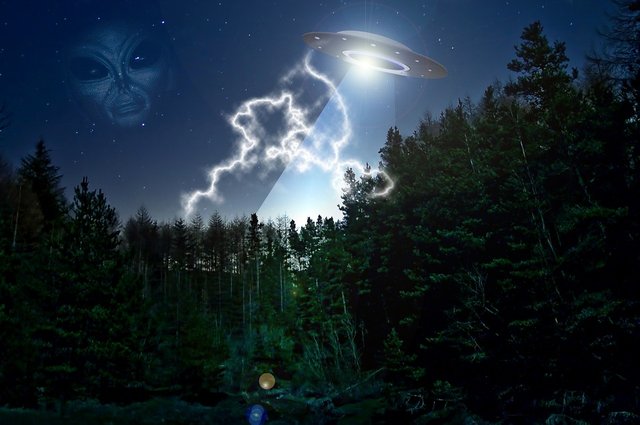
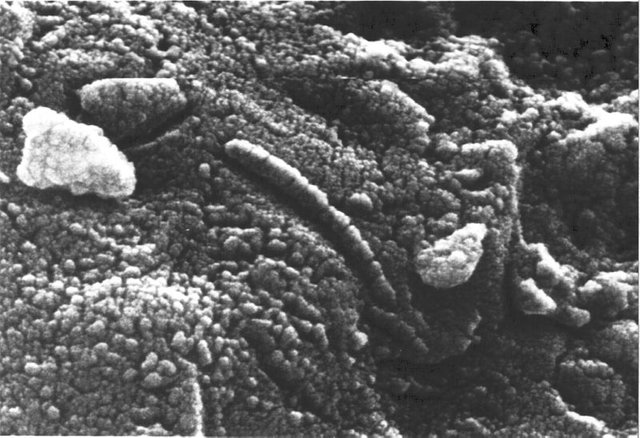

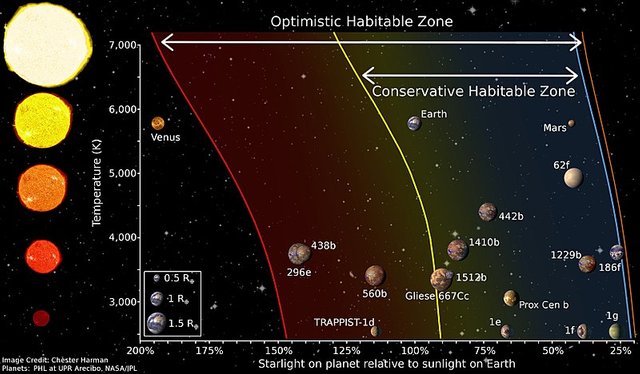
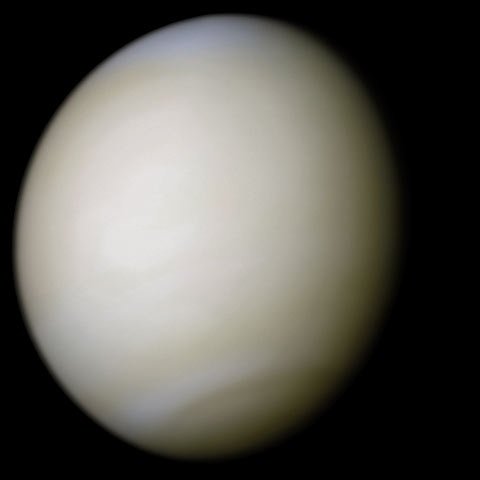
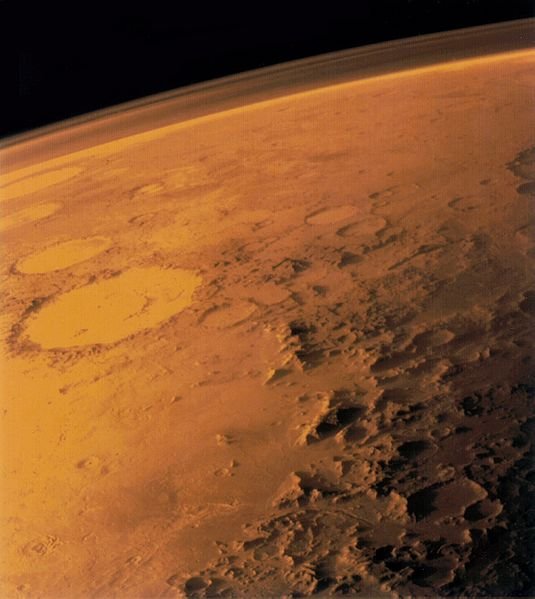
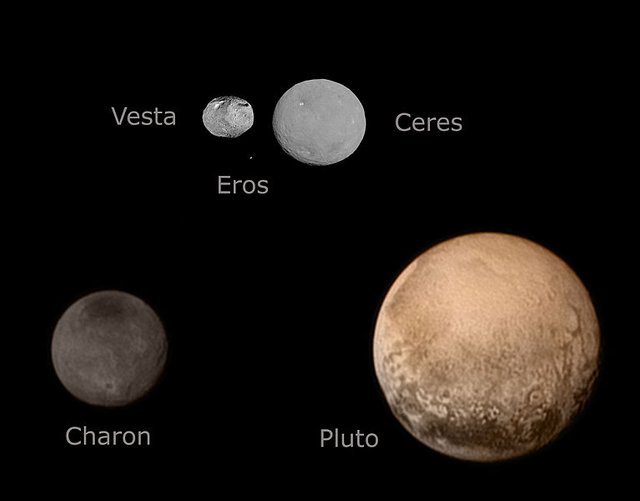
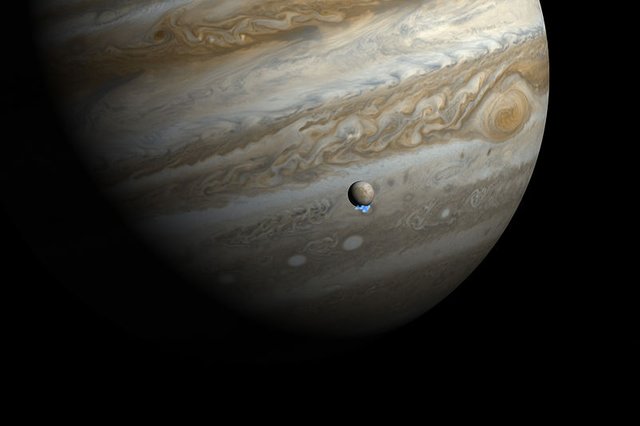
Hi @agbona! It is a great pleasure reading your article. I was just amused by seeing your hard work here.
Moreover, I also share the same passion of writing about space articles and I am glad reading your post. It is very educative! I specially liked the information you explained about Ceres and Europa. Your efforts are highly appreciated! :)
I was preparing the article about exoplanets but after seeing your effort in the post; I just given a twist to my article and changed the structure! ;)
Cheers!! :)
I am truly honoured that you find my post interesting, and I look forward to your upcoming article.
I just followed you, in anticipation. Many thanks.
Thanks for your nice words!! :)
You have been curated! :D
Articles like yours are the ones that make me the most interested in science and the future. I would really like to think that we are not alone here, and definitely not a fluke.
I can't wait for the moment to send missions to Europa, Enceladus or asteroids and find that life is or at least was present on any of them.
Great job!
You're absolutely right on that one, we humans aren't a fluke, take a proper look at us, how sophisticated and well evolved we are, it didn't happen by chance.
Same here, I believe there will be some fascinating discoveries over there... The only problem is that it will take quite a bit of time to for us to find out, as the distance between Earth and Europa, for example, will last for a least 6 years. But yes, we could see these results in our lifetime.
Many thanks for the curation!
You are a very active curator yourself as we keep meeting on other people's posts :D
Lol.
We belong to an amazing community
This is a discussion that some of us have on a regular basis. It can be very interesting to debate the possibilities of other life out there. I personally feel that it would be naive of us to think that Earth is the only planet with life. There is a huge galaxy out there and why couldn't it be possible that there are other life forms somewhere. Humans have only scratched the surface of space travel. Now, when it comes to Aliens visiting Earth, well who knows. Possible? Sure, why not. For sure? Who knows. So many questions. Great post.
I glad you enjoyed the post.
And you are asking the right question, the universe is so massive, and like you rightfully said, humans have barely scratched the surface. There might be an intelligent life somewhere in the corner of the universe, also, believing they are not alone.
There is so much to be discovered out there.
I hope one day we can make peaceful contact with another advanced civilization. That would be an historic day for sure.
You will probably enjoy reading about the Fermi Paradox since it is about this same subject.
Cheers mate!
Keyword "Peaceful" but if there truly is another advanced civilization out there, and we succeed in making contact with them. The level of panic that sweep across the globe will be epic "so Aliens are real".
I believe that will really be interesting.
I am reading the Fermi Paradox, seems to be an interesting read. Thanks for the recommendation
Cheers buddy
One funny point is that one is always searching for habitable zones... for us. But what if life elsewhere would be different... we may be searching the wrong thing in the wrong place. I like being open-minded (and slightly trolling ;) ).
You are absolutely right, just as like the article about Fermi Paradox that @dedicatedguy recommended to me, suggests that there is a possibility other lifeforms or aliens might either have visited Earth in times past, or chose not to visit, or were on Earth and got destroyed along with the Dinosaurs.
But one thing is for sure, the Universe is old and big enough to have more than one planet with life in it.
Probably true :)
Well, we might eventually not be alone. The possibility of life on other planet is definitely worth the time. Though, I'll always say what are all these scientists finding around sef..But then, it's usually an interesting discovery whenever a new thing is found!
I wonder how u found interest in this kind of topics..I can't even write two lines if I attempt it
Well done fam!
Noted!
Believe me, when I say scientists are trying really hard, that is what has led the technological advancement in interstellar exploration. In the past, all they had was the telescope, and now we send unmanned vessels to other planets.
But the problem now is that, the universe is really massive, just to travel from Earth to Europa (one Jupiter's moons) will take 6 years, that is 12 years in a round trip. Now, we are faced with "Space" problem. But I see this changing in the future as they are developing advanced telescopes can analyse a planet's chemical composition and get results by just a glance.
I'll say interest is all you need, you should watch these movies "Interstellar" and "Martian"
Another spoiler, I rarely watch movies... Especially action movies...
Well, more and more developments keep popping up. So, it wouldn't be long till we get it right. The Telescope would really go a long way
Keep educating us, at least I'm finding it interesting here...
If it's gonna change anything, these movies are no action movies, basically sci-fi; believe me when I say they are amazing...
Well, maybe I'll give it a try, I've enough data at work here.... Thanks, hopefully, I'll check soon.
I don't forsee a peaceful contact with alien life.. I just feel one faction will see the other as a threat, or truly to claim superiority... coupled with so many barriers ranging from language, physical, who knows, we might even taste good to them... lol. I am of the opinion though that there exist alien life somewhere... our universe alone is too big to have us as the only existing life let alone SPACE
I completely agree with you, and I have a strong feeling that Man will most likely be the aggressor. I believe there is life in a remote corner of the universe, it's only a matter of "when" we make that discovery, or should I say when the discovery is made public. Because I have heard of so many conspiracy theories of UFO.
Anyways, I appreciate you insights.
Lol, we might be suprised with what we will find out. Maybe "our aggression is child's play when compared with "the alien's"... yes, I've also read about claims that some set of people are hiding UFO discoveries from the public.
Judging from what we've seen from Sci-Fi movies, you're absolutely right. But we can't certain, there may be aliens, somehwere in the universe, but what if humans are the most evolved and advance specie in the universe?
And we could end up being the aliens invading other planets in search of a new home. Since our planet is rapidly getting destroyed daily by our selfish activities.
Just a thought
Hmmmn... i agree
A never ending debate whether there really are extraterrestrial life is truly an interesting topic to discuss on. In my opinion, I think there are still life outside earth because of how massive the galaxy is. Man is still on search for the meaning of everything. The truth shall unravel in due time. Awesome article @agbona and keep up the good work on engagement.

I totally agree with all your points
Many thanks, @sakura1012 for engaging with my post.
No problem 😊